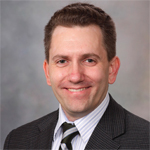Dr. Finck praises Dr. Siegel’s collaborative stance with industry: “Many times, when you are dealing with the FDA, there are these long silences. Jeff would sometimes just pick up the phone and call us. We would discuss things, and try to find the best path through to the right decision.”
Proactive Ambassador
The titles of Dr. Siegel’s invited talks over the past 10 years speak volumes about his wide-ranging scientific interests and his vision for advancing therapies in the rheumatic diseases. He has given talks on systemic lupus erythematosus (SLE), infections and malignancies in biologics, overviews of the drug development process, regulatory issues in pediatric rheumatology trials, and stem cell transplantation for autoimmune diseases.
Dr. Siegel has also been an active, enthusiastic member of ACR committees. This is atypical for bureaucrats in a regulatory agency, notes Dr. Lovell. “Dr. Siegel has been willing to take on that role, putting himself even more in the public eye.” Dr. Siegel’s participation on the ACR’s Drug Safety Committee has greatly enhanced the relationship between ACR and the FDA, and the ability of the ACR to be a timely and effective source of information about drug safety and efficacy for ACR members, Dr. Lovell says. Dr. Siegel reports that his interactions with the ACR are fulfilling and he looks forward to working with the ACR to develop trial endpoints for conditions such as SLE, dermatomyositis, and scleroderma.
Challenges for the Field
Rheumatologists worldwide have become concerned that noncommercial, investigator-driven trials are declining. “I think the leaders in rheumatology need to send a clear message that clinical research is valuable,” says Dr. Siegel. “They need to work to ensure adequate funding and adequate training to help out with the logistics of conducting clinical trials.” U.S. rheumatologists could learn some valuable approaches from their European colleagues in this regard, he says, pointing to the European League Against Rheumatism (EULAR) system for setting up consensus groups and devising response criteria by employing young rheumatologists in the literature review and initial recommendation process. Dr. Tyndall is also concerned that investigator-driven trials are becoming a “threatened species in the West.” He often touts to his European peers the “Siegel/FDA/ACR model” as an example of breaking through administrative barriers.
Open to the World
Dr. Siegel approaches world travel with the same enthusiasm he brings to his work. Fluent in French, Dr. Siegel also enjoys learning other languages. When he and his wife Dianne go to other countries, he makes it a point to learn basic greetings and conversational phrases and has noticed that people in host countries respond positively to his communicating in their language. Dr. Siegel and his wife also incorporate new activities into their travels. One trip to Canada included a dogsled ride; another to Costa Rica included a zipline tour of the rainforest canopy. “He enjoys new things,” says Dr. Furst. “He enjoys being with and interacting with people. He and his wife are very giving when we’re together.”

